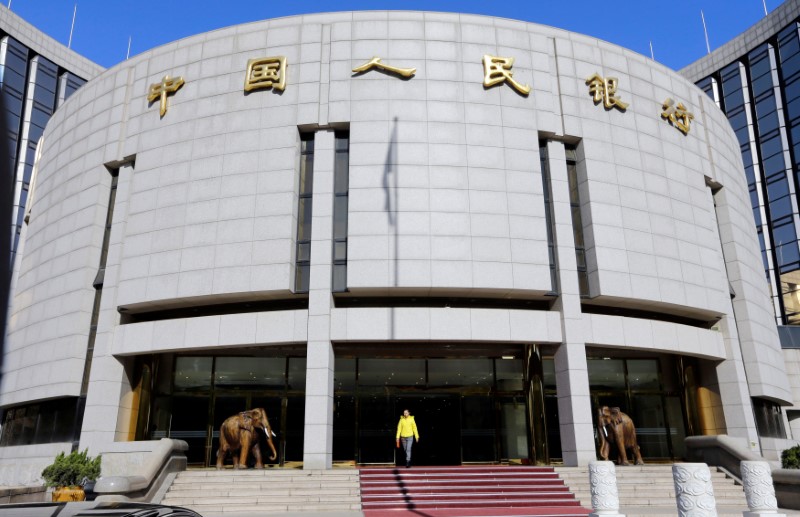BEIJING (Reuters) - China's central bank injected a net 99.5 billion yuan ($14.65 billion) into the financial system via short- and medium-term liquidity tools in June, up 95 percent from the previous month, to ease tight cash conditions at the end of the quarter.
The People's Bank of China switched to a modest tightening stance at the start of this year to help cool explosive growth in debt, but it injected substantial liquidity last month to avoid a quarter-end cash crunch, market participants said.
The PBOC said in a statement it lent 498 billion yuan in loans to financial institutions via its medium-term lending facility (MLF) in June.
The outstanding MLF was at 4.2245 trillion yuan at the end of June compared with 4.1578 trillion yuan at the end of May, implying a net injection of 66.7 billion yuan.
Meanwhile, the central bank extended 46.77 billion yuan in loans to local financial institutions in June via its standing lending facility (SLF), it said.
The total outstanding amount of SLF loans was 44.63 billion yuan at the end of June, compared with 11.82 billion yuan at the end of May, implying a net injection of 32.8 billion yuan.
The central bank uses the MLF and the standing lending facility as tools for managing short- and medium-term liquidity in the country's banking system.
China's primary money rates fell on Monday as liquidity in the banking system remained relatively sufficient, but cash conditions may tighten with large volumes of loans due to mature in the next two weeks, traders said.
The central bank will hold off on further monetary policy tightening and could even slightly loosen its grip in coming months as a deleveraging drive threatens economic growth and job creation ahead of a leadership reshuffle, policy insiders said.

($1 = 6.7924 Chinese yuan)